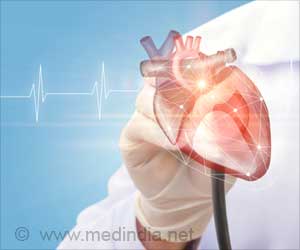Heart disease patients who are receiving folic acid and vitamin B12 treatment might be at an increased risk of cancer and death from any cause, suggests a new study.
A new study has suggested that heart disease patients who are receiving folic acid and vitamin B12 treatment might be at an increased risk of cancer and death from any cause.
Previous studies have shown inverse associations between folate (a B vitamin) intake and risk of colorectal cancer, although such associations have been inconsistent or absent for other cancers.However, the new study suggests that although folate deficiency may promote initial stages of carcinogenesis, high doses of folic acid may enhance growth of cancer cells.
During the research, Dr Marta Ebbing, of Haukeland University Hospital, Bergen, Norway, and colleagues analysed the results of two Norwegian homocysteine-lowering trials among patients with ischemic heart disease, where there was a statistically nonsignificant increase in cancer incidence in the groups assigned to folic acid treatment.
They examined whether folic acid treatment was associated with cancer outcomes and all-cause mortality after extended follow-up.
The patients were randomized to receive oral treatment with folic acid, plus vitamin B12, plus vitamin B6, folic acid plus vitamin B12, vitamin B6 alone or placebo.
The researchers found that serum folate concentration increased more than 6-fold among participants given folic acid.
Advertisement
A total of 100 patients who did not receive folic acid plus vitamin B12 died from cancer and a total of 16.1 percent of patients who received folic acid plus vitamin B12 died from any cause.
"Our results need confirmation in other populations and underline the call for safety monitoring following the widespread consumption of folic acid from dietary supplements and fortified foods," they added.
Source-ANI
RAS















